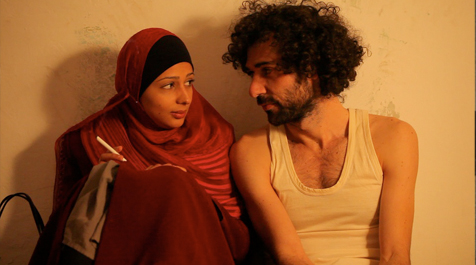Human Rights Film Festival: Habibi

Director and Screenwriter Susan Youssef’s Habibi is a story of forbidden love in the Gaza Strip. Incessant violence commands young lovers Qays and Layla to drop out of university in the West Bank to return to their homes in the Khan Yunis region of Gaza – an area comprised of a community that takes a more traditional and religious view towards a relationship outside wedlock. Under pressure to marry, Qays attempts to convince Layla’s father he can provide for her, but his endeavours are in vain as Qays is a poor construction worker who lives in a refugee camp.
The film shows the young romantic’s relentless efforts to prove his love to Layla and her family. By painting exerts from the ancient love poem Majnun Layla across the walls of Khan Yunis, we observe Qays carrying out a symbolic act of rebellion which has devastating consequences.
Story has it that the Sufi parable Majnun Layla inspired Shakespeare’s Romeo and Juliet. Watching the film, this is certainly evident. With a narrative revolving around the star-crossed lovers Qays and Layla, we see how politics, religion and societal pressures can be viewed in a higher regard than the act of love itself. In addition, we observe the film’s inclination to highlight controversial issues such as education, activism and women’s independence in a Muslim region.
Youssef came into the cinema after the screening to discuss her experience of making the film. Recently voted the world’s 25th most powerful Arab woman, she came across as intelligent, sharp-witted and fiercely ambitious. She talked about the complicated issue of funding and how she turned down several offers from agencies on the basis that it would affect the artistic integrity of her production. She recalled difficult periods of filming, for example, the numerous occasions when her equipment was destroyed and the times when she was refused the right to film in the Gaza region. Hearing her speak, it became apparent that only someone with the passion and determination possessed by Youssef could succeed in seeing a project like this through to its completion.
Every day, numerous accounts of violence and political unrest in the Gaza Strip are relayed to us by the daily press. It is crucial to look at the situation from a different perspective. Habibi is a perfect example of how fiction, and more significantly, a love story, can be used as a tool to capture the imagination and bring forth discussion and debate.
Connie Viney
Click here for more information on Habibi.























Facebook
Twitter
Instagram
YouTube
RSS